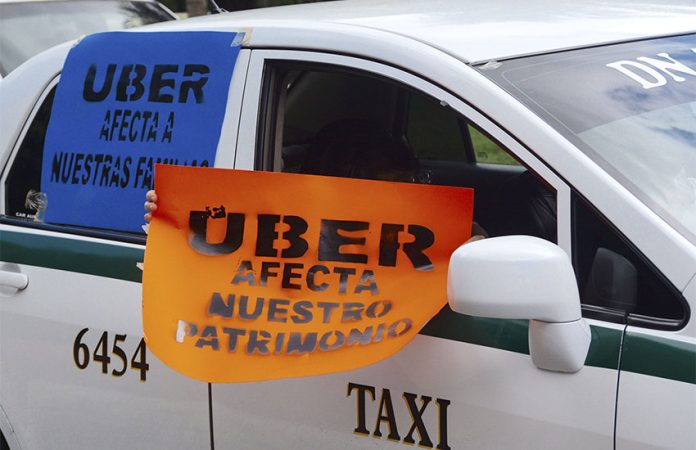Governor Mara Lezama on Wednesday sent a bill to the Quintana Roo Congress seeking to regulate ride-hailing services in the Caribbean coastal state.
The bill proposes changes to the state Transport Law, including the imposition of a levy on every trip provided by companies such as Uber and Didi in Quintana Roo.

The money raised would be payable to the state government and go into a transport fund that will finance roadwork.
According to a statement from the Quintana Roo government, the bill contains “the specific regulatory elements” required for the “operation of digital and technological platforms” that provide transport services.
Its submission to Congress comes three months after a Quintana Roo court ruled that Uber could operate in the state without a public transport license. That ruling led to an escalation of a long-running conflict between taxi drivers and rideshare services.
Lezama, a Morena party governor, said the proposed reform to the Transport Law “promotes free and healthy economic competition and a level playing field” for all transport providers.

Drivers for companies such as Uber won’t be required to hold a transport provider’s license if the bill passes Congress, as expected. They will, however, have to register with the Quintana Roo Transport Institute.
The Supreme Court ruled in 2021 that Uber provides private rather than public transport and therefore is not subject to the same laws as public transport providers.
Even so, taxi drivers have complained that drivers for ride-hailing apps can work without the expensive license they have to obtain.
Lezama said that the proposed reform to the Transport Law also seeks to provide security to public and private transport users via a range of measures including “real-time geolocation, panic buttons, video cameras and voice recorders that will be connected to our security system.”
Drivers for ride-hailing services who violate regulations set out in the proposed law could have their registration with the Quintana Roo Transport Institute suspended or canceled, she said. Breaches by taxi drivers could result in the cancellation of their licenses.
The state government’s statement said that the bill was developed with input from different stakeholders, including taxi drivers and representatives of ride-hailing services.
Implementation of all the Transport Law changes proposed in the bill is expected to take two years following its approval, according to state government secretary Cristina Torres Gómez.
With reports from Milenio, La Jornada Maya and Novedades Quintana Roo
